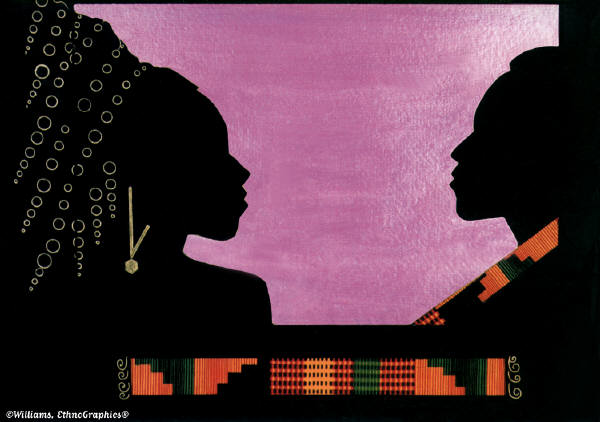February 25, 2013
By Ofer Tirosh
African Market Expansion: More Than English, Portuguese and French Translation Services
Pretty much since the beginning of marketing, African countries, audie
Interestingly, however, according to the International Monetary Fund, between the years 2012 and 2015, 7 out of the top 10 fastest growing economies and markets will be in Africa. Yet thus far, localized translation for most things has yet to be developed as a regularity for many native languages in Africa.
Obviously the primary reason for this has been that localization and language translation into Berber, Hausa or Oromo is not cost effective for the ROI that it would provide, despite the fact that each one of these native African languages has 25-50 million speakers. Nevertheless, because of economic disadvantages, underdevelopment and widespread poverty throughout Africa, corporate heads have opted to stick with French, Portuguese and English translation services to communicate with African audiences and markets. That, however, is likely to change very soon. At least if businesses do the smart thing, and follow suit with major South African companies like Vodacom, MTN and Business Connection, Africa's impressive economic growth and expansion will only get faster and reach farther. Translation and localization of marketing, services and global business must be delivered in a way that resonates with each native language audience, in order to remain a part of the market at all. In other words, it is not just the translation materials and brand localization delivered to African markets that must be considered, but just as importantly, the lasting impression and influence the brand leaves in local African market segments.
And the growing African market - and equally growing marketing campaigns efforts for everything from mobile apps and software sales to online dating services - is manifesting even within the professional translation industry. Within the past few weeks, we've received mobile app translations, software translation, and telecom services document translation for Zulu, Swahili, Malagasy, and several other native north and south African languages.
Why Market or Expand to African Markets Via Profe ssional Translation?
ssional Translation?
Let us state this very emphatically, though: Whatever sorely needed brands are first to be adopted in Africa will very likely be at the top of their industry for years to come within the African market, which is experiencing tremendous growth. This is the incentive for brands to localize and translate for African audiences, in more than just Portuguese, English and French translation.
Reaching African markets in upcoming years will require a great deal of effort on the part of medium-sized businesses to international corporations alike. Manpower is a must. There have been numerous examples of mistranslations and embarrassing mistakes made by international brand campaigns in European or Asian cultures and markets - so, it's a statement of the obvious to point out how much more risk is involved with African language and market localization, for which far less resources are available.
However, for most brands, the efforts will be worth the ROI, especially for the first ones to the door.
Resolving Risks and Concerns in African Market Translation and Localization
Concerning modern terms, concepts and even technical jargon, its a relatively easy task for translators to find linguistic equivalents for localization and language translations. Words like "browser" or "software application" can be translated from one European and/or Asian language and culture to another without too much fuss.
This is not the case for many, perhaps even most native African languages. It takes a heck of a lot more effort and digging in order to translate and localize modern terms and concepts, especially those that revolve around technology. After all, some native African languages haven't even been committed to written form yet. Try finding the linguistic equivalent of "spam" for an African language that has never been transcribed or written into a single book. Its not nearly as convenient as using those CAT and MT tools, or the handy-dandy power of the internet.
So, now that the risk and the absolute need for thorough research and full-force effort has been established - what steps should a business translation project take to effectively communicate to native language African communities?
-
Manpower, training and support - the need for this is much higher than for most translation and localization projects or marketing campaigns. Be sure to partner with a well-staffed translation company.
-
Quality assurance - I cannot count the number of times I've seen an English language document submitted for professional translation, when accuracy is supremely important - and the English version is full of errors to begin with.
-
To begin a professional quality translation, start with a perfect original.
-
Use experienced translators, especially for specialized subject matter and industry specific documents and materials - and, of course, proofread all translations.
-
For all projects, full-scale efforts and long-term marketing/PR campaigns, partner with a translation service with extensive localization capabilities, technology, and a wide network of translators with equivalent experience. Do not rely on a handful of freelancers for major African language translation and localization efforts.
-
Resources - in a survey and research report by Common Sense Advisory, 52% of 364 African language translators responded that the biggest difficulty they face with language translations is a lack of equivalent terms to the target African language. For example, there is no word for "cancer," "social media" or "cloud computing." These terms require extensive explanation, therefore often making translations arduous. This problem is especially true for technical translation within industries like psychology and information technology.
3. Consider more than just documents and written advertising translation and localization - how will your company deal with local call center services, if needed? Or even a simple helpline? Website translation, localization and searchable info?
4. Consider that multiple localized versions may be necessary for a single language. One African language can have hundreds of terms, phrases and vocabulary that vary greatly from another dialect even within the same vicinity, especially for languages with no official standardization, where dialects and ways of speaking are mere public tradition and preference. Identify such situations or potential problems before any localization.
While Africa may still have a long way to go as far as economic equality and opportunity, brand expansion into African markets will not only expedite this economic growth, but brands will heavily benefit from being the first to campaign there.
Why choose us

24/7 Human Support

1 Year Guarantee

95,000 Business Customers